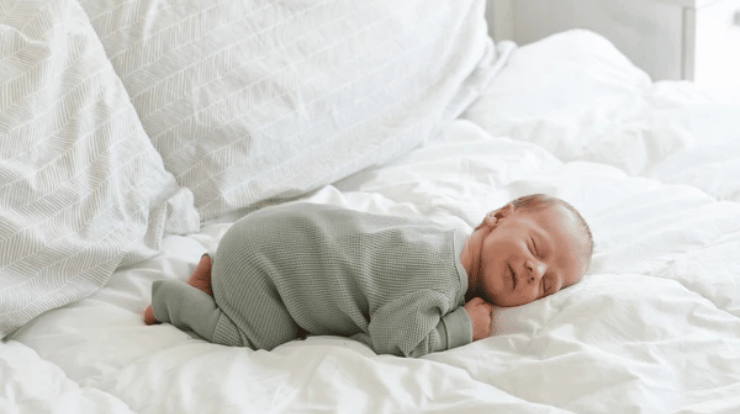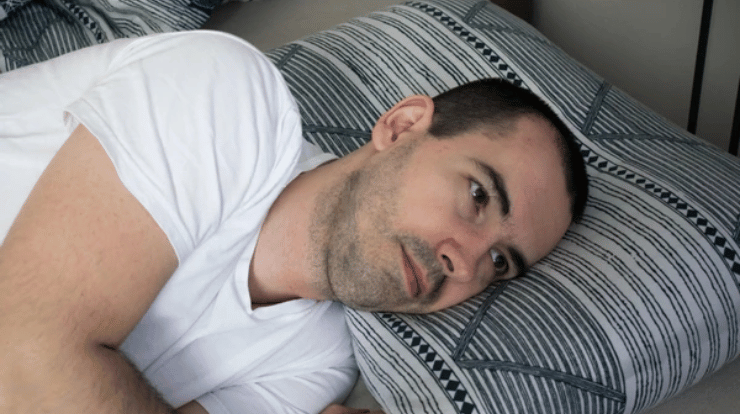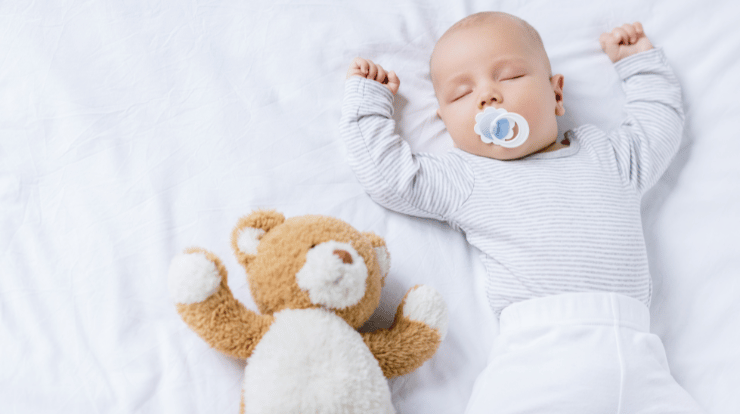
Many people have a question that why do babies smile in their sleep? Babies are a wonder to behold, and their smiles often light up a room. As a parent or caregiver, it is not uncommon to witness a baby smiling in their sleep. While it may be easy to assume that the baby is dreaming of something pleasant, there are several other reasons why babies smile during sleep.
In this article, we will explore the different reasons why babies smile in their sleep, including reflexes, dreams, social interaction, gas, developmental milestones, and emotional expression. Understanding why babies smile in their sleep can provide insights into their development and help parents and caregivers provide the best possible care for their little ones.
Reasons Why Do Babies Smile in Their Sleep?
Babies are known to smile frequently, both when they are awake and when they are asleep. When a baby smiles in their sleep, it can be a heartwarming and adorable sight for parents and caregivers. But why do babies smile in their sleep? Here is a complete guide to help you understand this phenomenon:
1. Reflexes:
During the first few weeks of life, babies may smile involuntarily in their sleep due to reflexes. One of the reflexes that can cause a baby to smile in their sleep is the “Moro reflex.” This reflex is triggered by sudden movements or noises, and it causes the baby to open their eyes wide and arch their back while flinging their arms and legs out. This reflex can sometimes result in a brief smile.
Another reflex that can cause a baby to smile in their sleep is the “rooting reflex.” This reflex is triggered when the baby’s cheek or mouth is touched, and it causes the baby to turn their head and open their mouth as if searching for a nipple. This reflex can also result in a smile, especially if the baby is dreaming about feeding.
2. Dreams:
It is believed that babies dream just like adults do, and smiling during sleep may be a sign of happy dreams. Studies have shown that newborns spend most of their sleep time in the Rapid Eye Movement (REM) phase, which is when dreaming occurs. The content of these dreams is unknown, but it is possible that happy thoughts or feelings during dreaming could result in a smile.
Research has also suggested that babies may be able to remember their dreams. In one study, researchers observed that babies who had experienced a stressful event during the day were more likely to have nightmares during the night. This suggests that babies are capable of processing their experiences and emotions during sleep, which may contribute to the content of their dreams.
3. Social Interaction:
Smiling is a social cue, and it is possible that babies are smiling in their sleep-in response to social interactions they have experienced while awake. For example, if a caregiver has been smiling and talking to the baby before they fall asleep, the baby may continue to smile as they recall the interaction in their sleep.
Additionally, research has shown that babies can recognize and respond to facial expressions from a very young age. One study found that infants as young as two days old preferred to look at faces that were smiling over faces that were neutral or frowning. This suggests that babies are naturally attuned to social cues and may respond to positive social interactions even in their sleep.

4. Gas:
It is also possible that smiling during sleep could be related to digestive processes. Babies often have gas or experience discomfort related to digestion, and smiling or other facial expressions could be a result of these bodily processes.
When babies have gas or other digestive discomfort, they may squirm or fuss in their sleep. Smiling or other facial expressions could be a way for the baby to release tension and feel more comfortable. Additionally, some babies may simply be more prone to smiling or making facial expressions while they sleep, regardless of the cause.
5. Developmental Milestones
Smiling is an important developmental milestone for babies, and they often begin to smile intentionally around six to eight weeks of age. However, babies can smile reflexively from birth. Smiling during sleep could be a sign that the baby is practicing their smiling skills, as the muscles in their face and brain are developing.
In conclusion, babies smile in their sleep for a variety of reasons, including reflexes, dreams, social interaction, and gas. While the exact cause of a baby’s smile during sleep may not always be clear, it is clear that smiling is a natural and normal part of a baby’s development. As parents and caregivers, it is important to cherish these moments and continue to provide positive social interactions for the baby both during waking hours and during sleep.
When Babies Smile in their Sleep Do they See Angels?
There is no scientific evidence to support the claim that babies see angels or any other supernatural beings when they smile in their sleep.
Babies are still developing and their brains are not fully formed, which means they may experience different sensations and perceptions than adults do. While it is possible that babies may have vivid dreams or experience sensations that we cannot fully understand, it is important to approach such claims with skepticism and seek evidence-based explanations for their behaviors.






